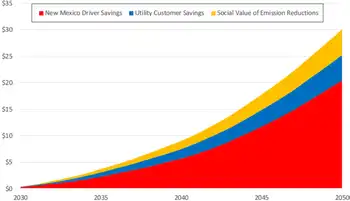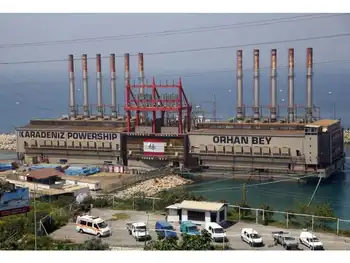B.C. in new push to woo Asia
By Globe and Mail
NFPA 70e Training - Arc Flash
Our customized live online or in‑person group training can be delivered to your staff at your location.

- Live Online
- 6 hours Instructor-led
- Group Training Available
The capital tax move - along with cuts to corporate and small business rates - were key planks in a recent budget aimed at enhancing competitiveness, while at the same time introducing a carbon tax.
"As long as we were taxing the assets from our financial institutions, we would not see them growing in British Columbia, we would not bring financial institutions from Asia to our centres," B.C. Finance Minister Carole Taylor said in Victoria, adding that the unpopular tax came up repeatedly in prebudget consultations with business interests.
The tax cuts are "probably the two most significant things in the budget from an economic sustainability point of view," said B.C. Chamber of Commerce president John Winter, adding that the move should make it easier to build a finance sector in Vancouver.
The province announced that plan several years ago and "wondered why nobody took them up on it," he said. "But if you have a high marginal tax rate, and a capital tax - that really turned people off."
The capital tax on financial institutions was scrapped as part of a new provincial budget that also offers tax cuts for corporations and small business. In phasing out the tax on financial institutions, B.C. will be lining up with Alberta, which does not impose such a levy, and with Ontario, which also plans to eliminate the tax.
B.C. scrapped its corporate capital tax on most businesses in 2001 but retained it for financial institutions, with large institutions paying a 3-per-cent levy and smaller institutions paying 1 per cent.
The corporate capital tax move is part of a package of cuts, incentives and other measures, including a widely expected carbon tax, unveiled in the budget by Ms. Taylor, who highlighted the document's climate change themes with a choice of green shoes and a green-toned suit.
The carbon tax, a key part of B.C.'s previously announced plan to slash greenhouse gas emissions by one third by 2020, has been crafted as a revenue neutral program that will funnel funds from fuel taxes back to consumers and businesses in the form of tax cuts.
Under the new budget, B.C.'s corporate income tax rate - now 12 per cent - will be reduced to 11 per cent as of July 1, and is expected to fall to 10 per cent by 2011. The small business rate, now 4.5 per cent, will be cut to 3.5 per cent this July.
The lower corporate rate is in keeping with steady downward moves since 2001 when the Liberal government was elected - and with the federal government's take on tax competitiveness, Ms. Taylor said.
"For (federal Finance Minister Jim) Flaherty and the federal government, who have put out the challenge and said they would like to be able to go around the world and say that Canada generally has the lowest taxes anywhere... it works out to 25-per-cent combined federal and provincial tax," Ms. Taylor said. "It will be a big incentive for business to come to Canada and we certainly hope to British Columbia."
Alberta's 10-per-cent corporate tax rate is currently the lowest in the country.
The budget provides $1-billion over four years for climate action programs, ranging from $57-million for bio-energy and "alternative energy solutions" and $98-million for research, including a feasibility study on methods to capture and store carbon from natural gas production.
The province is looking at bio-energy projects, such as wood-waste fuelled electricity plants, as one way to deal with vast stands of pine beetle-killed wood, which can increase the risk of forest fires and has limited or no value as lumber.
In the short term, however, Ms. Taylor did not hold out any quick fix for the province's ailing forest industry, which has been hammered by the housing crisis in the U.S. and a strengthening Canadian dollar.
"There is no just getting away from the fact that when the United States has a housing crisis of the magnitude that we are now seeing there, and a credit crunch and financial institutions who are all involved - there is no way that we can be isolated from that."
Some business groups voiced concern over the new carbon tax and obligations under the cap-and-trade system for large emitters.
B.C. and Manitoba, along with seven U.S. states, are part of the Western Climate Initiative that is developing a cap-and-trade system expected to be unveiled this summer.











